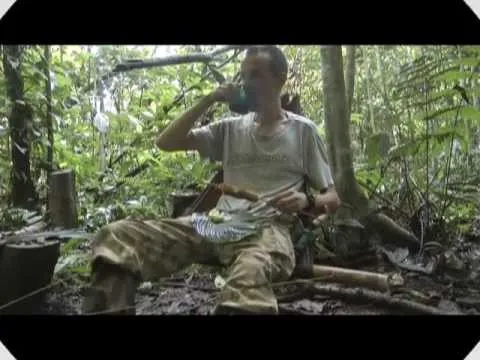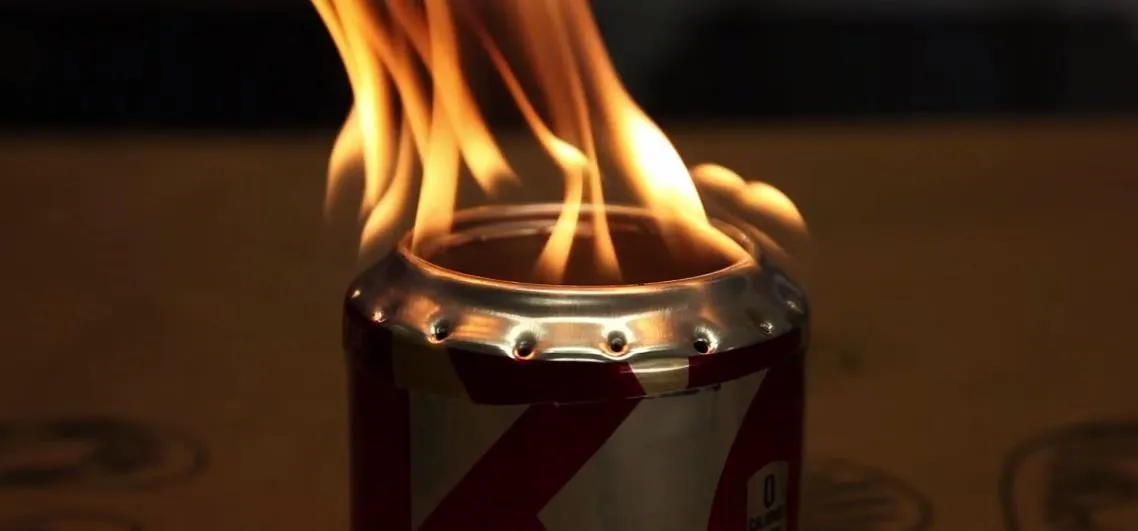Many of us experience highly emotional "freakouts", so to speak, more often than we'd like. Weather you experience them personally, or via your loved ones, it can be very difficult to think rationally during an episode, and for some people it can take quite a while to calm down.
It turns out, our bodies have a built-in way to deal with situations of extreme stress that can also be used to quickly calm ourselves down. It's perhaps best illustrated by the story of Anna Bågenholm's incredible survival after she became trapped under a layer of 8-inch-thick ice—submerged in freezing water—for 80 minutes.
Anna was an expert skier, so the mountains outside Narvik, Norway were nothing new to her. But on this fateful day, she lost control while heading down a steep slope and fell into a frozen stream. The ice shattered, trapping her headfirst underwater with only her skis and boots protruding from the stream.
Managing to find an air pocket, Anna was able to breathe and remain conscious for almost 40 minutes before succumbing to circulatory arrest. When the rescue team pulled Anna out of the water, she looked anything but alive. With her freezing cold skin, lack of breathing, and lifeless heart, upon seeing her the hospital's head of emergency medicine said, "...she looks absolutely dead."
Miraculously, hours later her heart started beating again. Anna not only survived, but suffered no permanent brain damage. Today, she still has some nerve damage in her hands, which makes it difficult to write and cook, but it's a relatively low cost considering she was dead for several hours.
No one else has ever had such a low body temperature for so long and lived to tell about it, which begs the question:
How the hell did she survive?
Mammalian Diving Reflex
While there are many factors—such as timing, CPR and, well, chance—that led to Anna's survival, one thing that surely helped save her life is the mammalian diving reflex.
Humans and other mammals all have this instinctive response, which sets off certain reflexes in the body when the face is cooled or breath is held. These reflexes allow the body to survive longer in severe conditions, with a much lower level of oxygen. This is what allows marine mammals, such as whales, to search for food for long periods of time without coming up for air.
When the mammalian diving reflex is invoked, there are three important things happening in the body:
- Bradycardia—the heart rate slows down anywhere from 10 to 30 percent, and sometimes up to 50 percent in those trained in the technique.
- Peripheral Vasoconstriction—the blood vessels narrow, reducing blood flow to the limbs so that oxygen-sensitive organs such as the brain and heart are supplied with enough oxygen to continue functioning.
- Blood Shift—during a deep dive, blood plasma slowly fills the lungs to protect the chest cavity and prevent the lungs from collapsing under the extreme increase in pressure. The plasma is reabsorbed by the body once the pressure returns to normal.
As Anna's body detected the cold water immersion, it not only constricted blood flow, but also kept her heart rate at a slow pace. All non-essential functions (such as digestion) stop during this process so the body can adjust in order to survive longer without oxygen.
While this complex and poorly understood "superpower" saves many lives, it may seem that few of us would ever be in a position to use it. However, it turns out that with minimal effort, the mammalian diving reflex can actually make a significant impact on your daily life, or that of your emotionally volatile loved ones.
Use Your Mammalian Diving Reflex to Relax
Interestingly, the mammalian diving reflex affects humans only when the face is submerged in cold water. Certain receptors and nerves in the face and sinuses react to the temperature drop, which then relay this information to the brain and the autonomic nervous system (ANS). The drop in heart rate and constriction of blood vessels begin almost instantaneously.
Because of how fast it kicks in, this body hack can be used as a relaxation technique. Since your heart rate drops, the reflex can be used to force the parasympathetic nervous system (PNS) to kick in almost immediately, helping you to relax and calm down. All you need to do is:
Fill a bowl with ice cold water.
Hold your breath and submerge your face in the water. Make sure that the area underneath your eyes and above your cheekbones is submerged, as it is the most receptive part of the face.
Wait about 30 seconds.
You should notice a drop in your heart rate almost immediately. About thirty seconds after you emerge from the water, you'll start to feel the maximum effect. You can repeat the process as many times as you like to increase the effect.
Alternatively, you can cover your face with a cold, wet towel to trigger the response.
So, the next time you're under emotional duress, or your loved ones start freaking out, try out the mammalian diving reflex. It might just work for you.
The body can do some pretty crazy things, huh?
Ice water photo via Running Marcel, Whales photo via Breatheology, Submerged face photo via Shutterstock, Dunking head photo via Pearson College Marine Science


























Comments
Be the first, drop a comment!